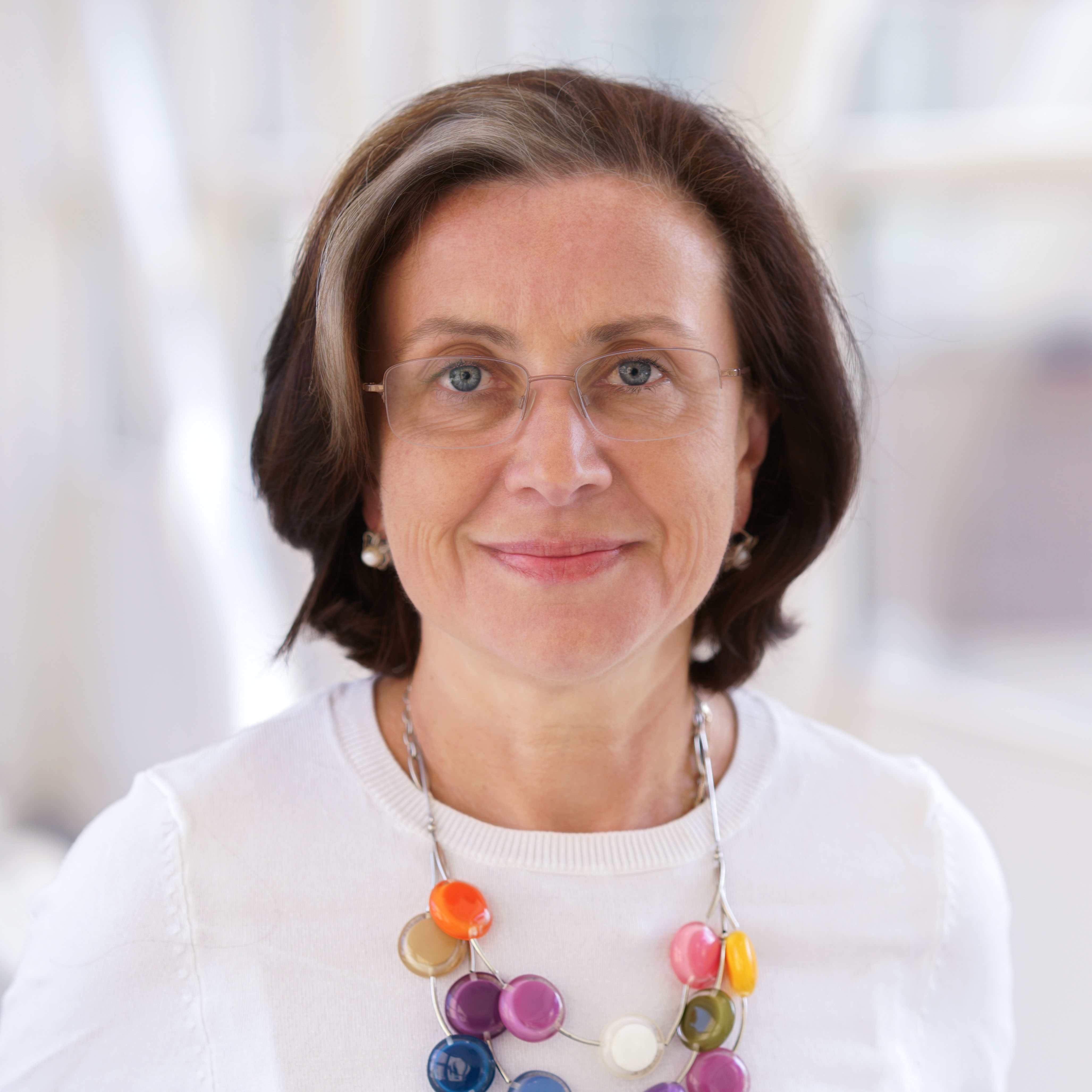Specializing In:
- Drug Discovery
- Chromatin biology
- Regulation of transcription
- 3D nuclear architecture
Research Interests:
- Discovery and development of new anticancer drugs
Biography
Dr. Katerina Gurova came to Roswell Park Comprehensive Cancer Center from Cleveland BioLabs, where she served as Director of Anti-Cancer Drug Discovery. Before joining Cleveland BioLabs, she worked as a Project Scientist in the Department of Molecular Genetics at The Cleveland Clinic.
Dr. Gurova earned her medical degree from the Sechenov Medical Academy and a doctoral degree in experimental oncology from the Blokhin Cancer Research Center, both located in Moscow, Russia.
Dr. Gurova’s research interests are focused on the discovery and development of new anticancer drugs. Specifically, she identified a new class of prospective anticancer agents named curaxins which interfere with DNA binding to histones and cause nucleosome disassembly and chromatin decondensation, phenomenon which they named "chromatin damage." Her lab at Roswell Park is trying to understand why chromatin damage is more toxic for tumor, than normal, cells, how chromatin damage effect gene transcription and what systems in cells ensure chromatin integrity in normal cells and how these systems are altered in cancer. She is also involved in clinical trials of curaxins for different types of cancer, including pediatric malignancies. Several other preclinical stage candidate drugs were discovered in her lab including inhibitors of androgen receptor for castration resistant prostate cancer, p53 activators specific for breast cancer and several others.
Dr. Gurova is a member of the American Association for Cancer Research.
Positions
Roswell Park Comprehensive Cancer Center
- Associate Professor of Oncology
- Department of Cell Stress Biology
Background
Education and Training
- 1989-1993 - MD - Sechenov Medical Academy, Moscow, Russia
- 1993-1997 - PhD - Experimental Oncology, Blokhin Cancer Research Center, Moscow, Russia
Fellowship
- 1998-2001 - Molecular biology of cancer, University of Illinois at Chicago, IL
Professional Memberships
- American Association for Cancer Research
Professional Experience
- Director of Anti-Cancer Drug Discovery, Cleveland BioLabs
- Project Scientist, Department of Molecular Genetics, The Cleveland Clinic
Research Overview
Major goal of our lab is the discovery of new anti-cancer agents through different approaches, their testing and early stage development as well as understanding of the mechanisms of their activity. We have molecules at different stage of development, including one, curaxin CBL0137, in clincial trial.
Our current focus area is chromatin remodeling factors, their role in normal development and disease, DNA damage detection and prevention. Specifically we are concentrated right now on a Facilitates Chromatin Transcription (FACT) complex. We have found that it may be used as a marker of aggressive poorly differentiated cancers with low overall survival. We are in the process of validation of FACT as an anti-cancer target through identification and testing of chemical FACT inhibitors and genetically modified mice to see consequences of FACT inhibition for tumors and the whole organism.
We also believe that FACT may be involved in the protection of our genome from DNA damage through the control of DNA topology. FACT can detect abnormal or alternative DNA structures and convey signal to p53 activation. Thus FACT has been a sensor and mediator of a novel type of cell stress-DNA superhelical or torsional stress, which is the situation when DNA is over or undertwisted, and may result in DNA breaks.
New area of lab research is how chromatin stability is regulated, supported and ensured in eukaryotes, and how cancer cells manage to have their chromatin stable in spite of constant replication. Factors ensuring chromatin stability in cancer cells should be overactive and may present novel targets for anti-cancer therapy.
View the Gurova LabPublications
- Can aggressive cancers be identified by the "aggressiveness" of their chromatin?
Gurova K. Bioessays. 2022 Jul;44(7):e2100212. doi: 10.1002/bies.202100212. Epub 2022 Apr 22.
PMID: 35452144 - FACT maintains nucleosomes during transcription and stem cell viability in adult mice.
Goswami I, Sandlesh P, Stablewski A, Toshkov I, Safina AF, Magnitov M, Wang J, Gurova K.
EMBO Rep. 2022 Apr 5;23(4):e53684. doi: 10.15252/embr.202153684. Epub 2022 Feb 18.
PMID: 35179289 - Dual targeting of the epigenome via FACT complex and histone deacetylase is a potent treatment strategy for DIPG. Ehteda A, Simon S, Franshaw L, Giorgi FM, Liu J, Joshi S, Rouaen JRC, Pang CNI, Pandher R, Mayoh C, Tang Y, Khan A, Ung C, Tolhurst O, Kankean A, Hayden E, Lehmann R, Shen S, Gopalakrishnan A, Trebilcock P, Gurova K, Gudkov AV, Norris MD, Haber M, Vittorio O, Tsoli M, Ziegler DS. Cell Rep. 2021 Apr 13;35(2):108994. doi: 10.1016/j.celrep.2021.108994. PMID: 33852836
- Stimulation of an anti-tumor immune response with "chromatin-damaging" therapy. Chen M, Brackett CM, Burdelya LG, Punnanitinont A, Patnaik SK, Matsuzaki J, Odunsi AO, Gudkov AV, Singh AK, Repasky EA, Gurova KV. Cancer Immunol Immunother. 2021 Jul;70(7):2073-2086. doi: 10.1007/s00262-020-02846-8. Epub 2021 Jan 13. PMID: 33439292
- Histone chaperone FACT is essential to overcome replication stress in mammalian cells. Prendergast L, Hong E, Safina A, Poe D, Gurova K. Oncogene. 2020 Jul;39(28):5124-5137. doi: 10.1038/s41388-020-1346-9. Epub 2020 Jun 12. PMID: 32533099
